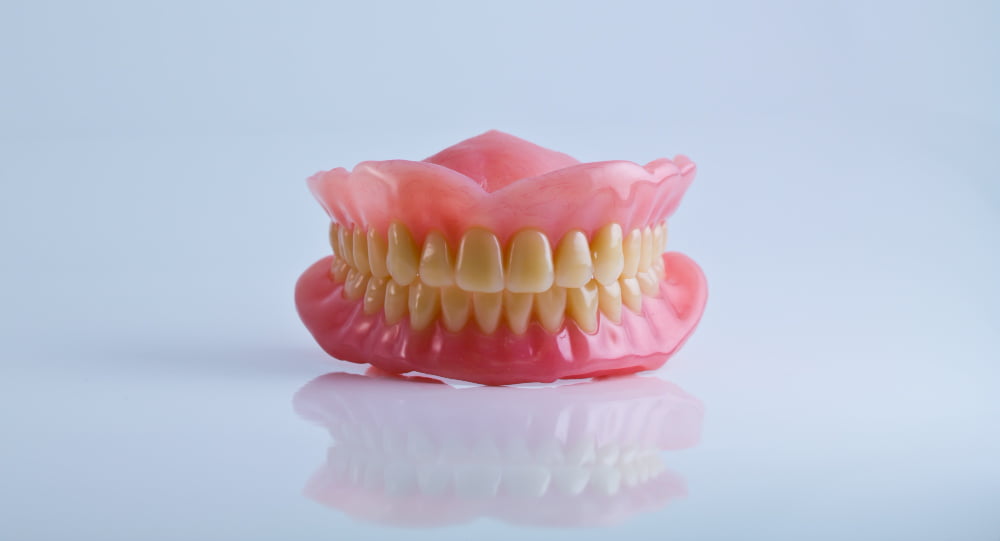If you’re someone who doesn’t have natural teeth, dentures can be a fantastic solution that can change your life. They’re able to restore your oral functionality and give you the ability to do things like chew and speak with ease. However, there can be challenges with wearing and using dentures, especially at the beginning or with extended use.
Dealing with sore gums from dentures can be incredibly difficult and painful. It can make everyday activities like eating, talking, and even smiling feel like a battle. Laughing becomes a daunting task, and enjoying one’s favorite foods can feel impossible, as it can be as uncomfortable as chewing on a bed of nails. When this discomfort persists, it can make it hard to sleep at night and lead to emotional distress. This can lead to feelings of helplessness, frustration, and even isolation, causing one to avoid socializing altogether. It’s tough to enjoy the simple pleasures of life when dealing with such discomfort.
Rest assured, and you’re not alone in facing this challenge. There are effective home remedies that have been tried and tested and helped many successfully triumph over this condition. In this blog, I’ll share with you these thoroughly researched and well-tried home remedies for sore gums from dentures, making you find relief and feel better soon.
Use Salt with Water
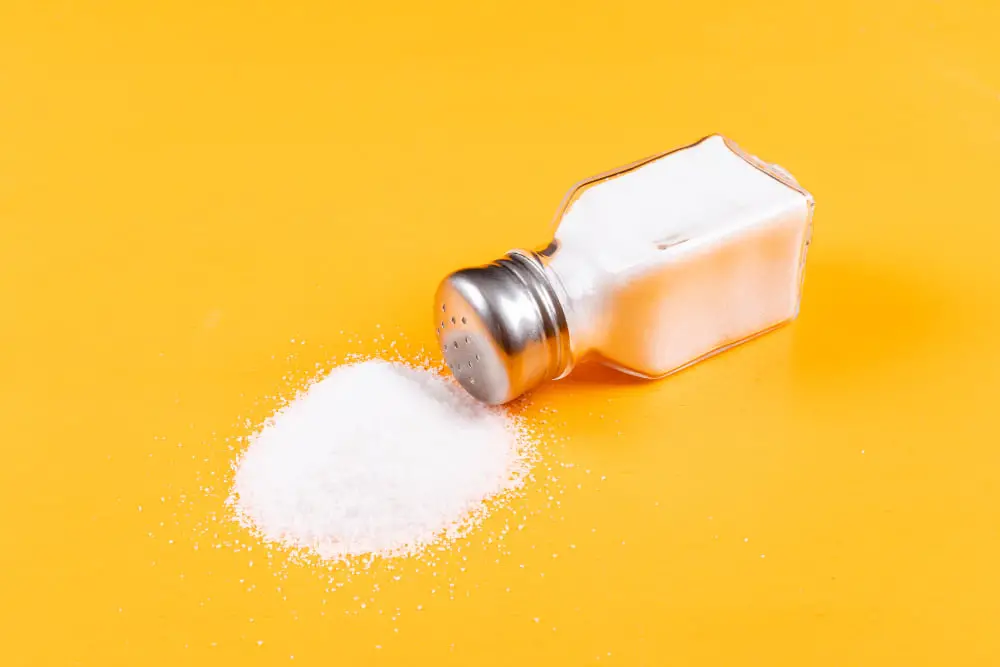

There are amazing benefits of saltwater gargling when it comes to relieving pain from denture sores.
By using saline mouthwash, we can effectively prevent and treat denture stomatitis. This is because the saline solution, being hypertonic, draws excess water from inflamed tissues in the sore, reducing inflammation. This fact is well-supported by research published in the Journal of Prosthodontic Research back in 2016.
Saltwater has the remarkable ability to promote the regeneration of tissues, motivating gingival fibroblast migration and boosting extracellular matrix components. This aids in the healing process of wounds and accelerates recovery from denture sores.
Moreover, saltwater can naturally reduce the growth of germs that cause denture-related oral problems. In fact, a controlled trial published in The Journal of Clinical and Experimental Dentistry (2020) found that saline water gargling can be a cost-effective and natural alternative to pharmaceutical treatments. This means that taking care of your oral health can be as simple as incorporating salt water into your routine.
How to use;
- Rub your gums with salt using clean fingers for a few seconds after removing dentures. Gargle with warm water. Do this twice daily.
- To relieve swollen gums, try gargling with a glass of lukewarm water mixed with one teaspoon of salt. Repeat this three to four times a day. It’s also recommended to gargle with this mixture at least once a day, even if there is no infection or swelling present.
Use Turmeric
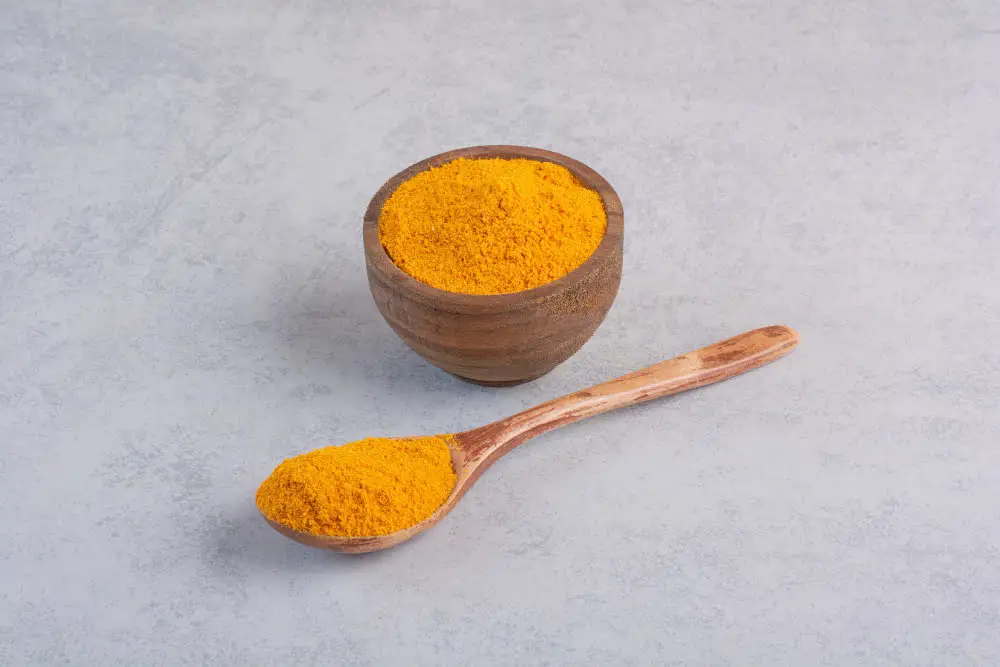

Turmeric, the bright yellow spice commonly used in curries, has some amazing health benefits. Its key component, curcumin, has anti-inflammatory, antibacterial, antifungal, pain relieving, and wound-healing properties.
If you have sore gums, it could be due to ill-fitting dentures, poor oral hygiene, or friction between your gums and dentures.
Luckily, the anti-inflammatory effect of curcumin can help decrease gum swelling and relieve pain. Plus, the anti-fungal properties of turmeric prevent germs and bacteria from growing between your denture and gum spaces. If you have any sores, turmeric’s pain-relieving and wound-healing properties can help reduce the healing time and relieve the piercing pain feeling.
How to use;
Turmeric can be used to help with denture sores. There are a few ways to use it:
- You can enjoy the benefits of antiseptic and pain relief by simply adding a pinch of turmeric powder or half a teaspoon of raw grated turmeric into boiling water to make turmeric tea. This daily ritual can surely help soothe gum soreness.
- By using turmeric in warm water as a mouthwash, you can reduce inflammation and accelerate the healing process. Try swishing this incredible solution in your mouth for one minute and experience amazing results.
- One more way to soothe gum sores is to apply a turmeric paste made by combining turmeric powder with Extra Virgin coconut oil. Simply leave the paste on the affected area for 5 to 10 minutes, and then rinse with warm water.
Use Chamomile tea


Chamomile tea, which is derived from the daisy flowers of the Asteraceae family, has been known for centuries for its soothing and calming medicinal properties. It is especially helpful for those who suffer from sore gums caused by dentures. The tea is loaded with compounds such as flavonoids and terpenoids, which have anti-inflammatory, anti-microbial, and antioxidant properties. With its ability to lower inflammation and reduce the growth of oral bacteria in the mouth, chamomile tea comes as a handy solution for denture wearers seeking relief.
How to use;
The dried flower heads or tea bags of chamomile can be used to heal denture sores in the following ways;
- Make some chamomile tea and let it cool down to room temperature. Then, swish it around in your mouth for about a minute, making sure it gets to all parts of your gums. Spit it out when you’re done, and avoid eating or drinking for a little while to give the chamomile time to work its magic.
- Make some strong chamomile tea and let it cool down a bit. Then, dip a clean cloth or gauze pad into the warm tea and gently press it against your gums for about 10 minutes. You can do this two to three times a day until the pain and inflammation start to go away. Give it a try, as it will surely help!
Use clove
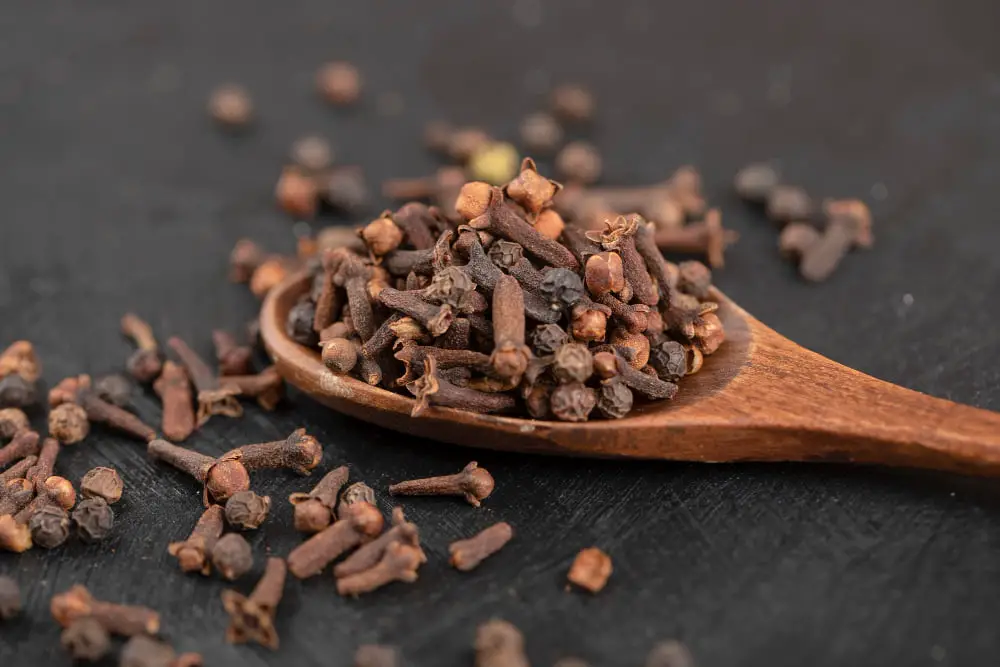

If you’re looking for home remedies for sore gums from dentures, clove, an herb commonly found in the kitchen, can be an effective solution. It contains a powerful compound called eugenol, as well as acetyl eugenol, which has anti-inflammatory, antimicrobial, and analgesic properties. This makes it an excellent choice for relieving pain and disinfecting the oral cavity. In fact, study has shown that combining clove extract with cinnamon can be a promising alternative to traditional allopathic drugs for treating denture stomatitis, a condition that affects many people. Not only is this approach more palatable, but it also has no known side effects. So if you’re struggling with oral pain or discomfort, consider giving this herb a try.
how to use;
Clove has versatile uses, and it can be utilized in two different forms – as a spice or as clove oil. The ways of incorporating them are ;
- Grind the clove buds into a powder until you have about half a teaspoon. Mix it with a few drops of coconut oil to create a paste. Use a cotton bud to put this paste on the sore spot. Leave it on for 15 minutes, then wash it off.
- Clove oil is a strong stuff, so you’ll have to mix it with a carrier oil like olive oil or coconut oil before using it. Otherwise, it could irritate your skin. Apply a little bit of the diluted oil with a cotton bud on the affected area, and massage it in gently for a few minutes.
aloe Vera gel
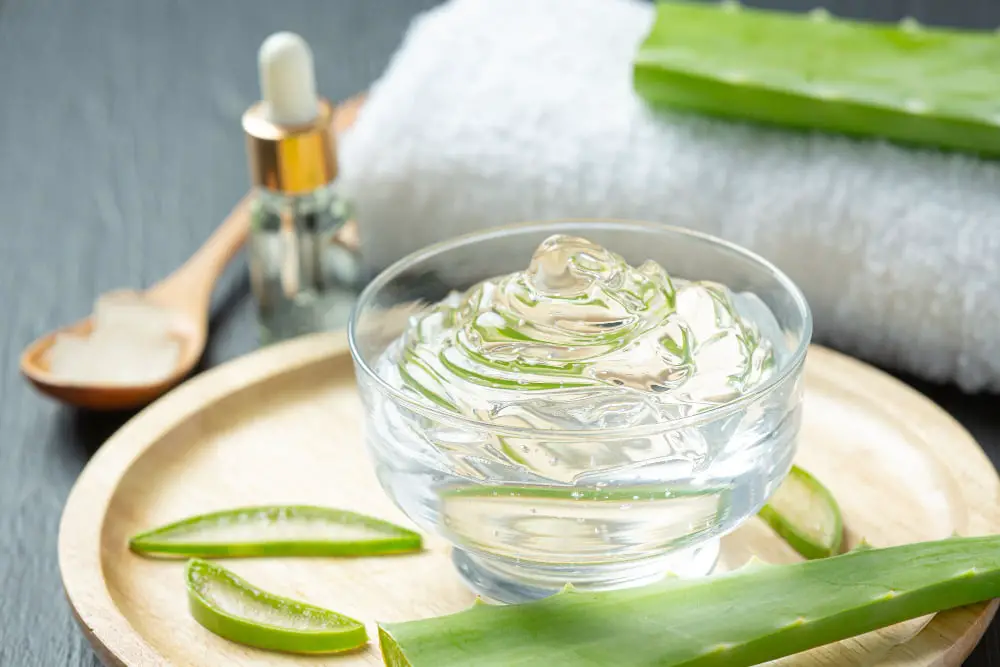

Aloe vera has a long history of use for its potent anti-inflammatory properties and ability to promote wound healing. Its high content of Muco Polysaccharides, Amino acids, and Zinc make it an exceptional herbal remedy for treating skin ulcers and mouth sores. Research has shown that aloe vera is a highly effective herb for managing various oral diseases, including denture stomatitis. Its promising benefits make it an excellent choice for those seeking natural oral health remedies.
Aloe vera’s anti-microbial properties against common oral pathogens are strong and have been supported by several studies that demonstrate its effectiveness in preventing infections associated with swollen and inflamed gums. Moreover, aloe vera aids in the wound-healing process caused by ill-fitting dentures by regenerating tissues in the affected area.
How to use;
Aloe vera gel can be purchased from a pharmacy or health store. Alternatively, its extract from the plant can be used directly.
- If you’re going to buy aloe vera gel for your sore gums, make sure it’s pure and doesn’t have any chemicals or fragrances added to it. Some of those products are meant for cosmetics, not healing. Once you’ve got the good stuff, just apply it to your gums with clean hands or a cotton swab. Let it sit for about 10 minutes so it can work its magic. It’s a good idea to do this after meals or right before bed for the best results.
- If you want to use aloe vera gel straight from the plant, here’s what you have to do. Cut off about half an inch from the base of the stem and let it hang upside down for thirty minutes. During that time, some yellow liquid flows out of the cut part of the stem. Let it flow, as the alkaloids present in them can cause tummy troubles if aloe vera gel used with it gets swallowed. Once thirty minutes have passed, cut off the sides of the stem, strip off the outer hard skin of the aloe vera, peel and collect the aloe vera gel from inside, and blend it in a mixer grinder to get a thick, jelly-like liquid. Apply this to the affected area in your mouth or swish your mouth with it after meals twice daily for best results.
Baking soda
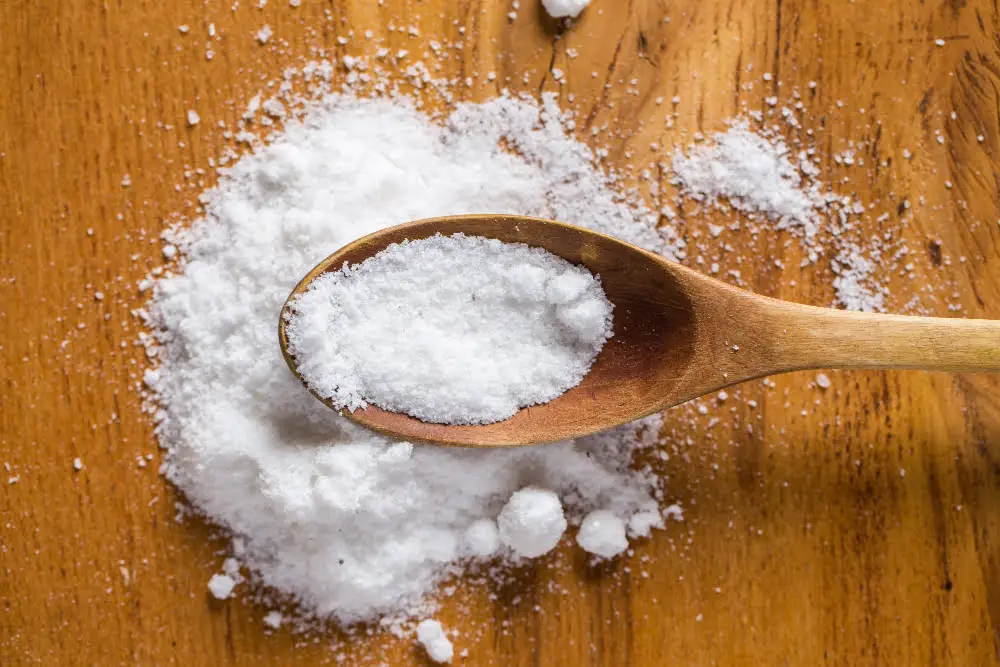

Baking soda has remarkable alkaline properties that can significantly contribute to oral health. The presence of acidic environments in the mouth can foster the growth of harmful bacteria, which can collect between dentures and gums, causing inflammation and soreness. This simple yet effective home remedy can help prevent the occurrence of gum inflammation and swelling, ultimately promoting better overall oral hygiene.
How to use;
Rinse the mouth multiple times a day with a blend of warm water and baking soda, which can effectively neutralize acid and inhibit the growth of these bacteria.
Gum massaging


Regularly massaging your gums can be incredibly beneficial for your oral health. By encouraging blood circulation in the gums, you can effectively reduce inflammation, swelling, and pain. This process also helps to remove harmful plaque and bacteria from the gum line, resulting in a healthier and stronger set of gums. With improved circulation and a decrease in bacterial load, your gums will be better equipped to handle the use of dentures and maintain optimal oral health overall.
Some final words
While these are several home remedies that can offer relief for oral soreness and pain, it is important to understand the significance of regular dental checkups and professional guidance. If the discomfort persists and home remedies fail to provide relief, seeking professional help is highly recommended. In addition, it is crucial to practice exceptional oral hygiene and maintain proper care of dentures to maintain a healthy oral environment. By combining these home remedies with professional guidance, even individuals who no longer have natural teeth can still enjoy a fulfilling life.
Hope that you found the information in this post helpful!
If you want to read more of our content, please visit our blog
Featured Image by jannoon028 on Freepik
DISCLAIMER – The tips provided are for informational purposes only and do not constitute professional advice.
